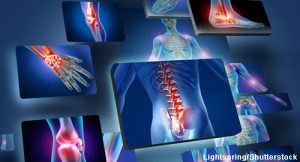 PRSYM—At its heart, the practice of medicine in all forms is specifically centered on delivering compassionate, thoughtful and evidence-based clinical care. In the world of pediatric rheumatology, a range of issues, such as chronic pain, reproductive health and transitioning to adult providers, are of utmost importance to patients and physicians alike. These topics were addressed in a session at the virtual 2021 Pediatric Rheumatology Symposium (PRSYM).
PRSYM—At its heart, the practice of medicine in all forms is specifically centered on delivering compassionate, thoughtful and evidence-based clinical care. In the world of pediatric rheumatology, a range of issues, such as chronic pain, reproductive health and transitioning to adult providers, are of utmost importance to patients and physicians alike. These topics were addressed in a session at the virtual 2021 Pediatric Rheumatology Symposium (PRSYM).
Chronic Pain
The first speaker was Sabrina Gmuca, MD, MSCE, assistant professor of pediatrics and medical director of the Center for Amplified Musculoskeletal Pain Syndrome, Children’s Hospital of Philadelphia. Her presentation kicked off with a discussion of the relationship between chronic pain and adverse childhood experiences, such as experiencing bullying, parental separation or divorce, or having a household member with a mental illness.
Research evidence shows youth with chronic pain report higher rates of adverse childhood experiences than the general population and the association between adverse childhood experiences and chronic pain is intergenerational and dependent on the amount of adverse childhood experiences. In a cross-sectional analysis of the 2016–17 National Survey of Children’s Health, Groenewald et al. found children with exposure to one or more adverse childhood experiences had higher rates of chronic pain than those with no reported adverse childhood experiences (8.7% vs. 4.8%). Researchers also found the strongest associations were financial instability (adjusted odds ratio [aOR] 1.9, 95%, confidence interval [CI] 1.6–2.2), living with a mentally ill adult (aOR: 1.8, 95%, CI: 1.5–2.2) and experiencing race-based discrimination (aOR: 1.7, 95%, CI: 1.3–2.2).1
Dr. Gmuca explained the concept of resilience, the ability to bounce back in the face of adversity. Resiliency describes a child’s capacity for continuing on a healthy developmental trajectory despite living with excessive chronic pain.
At Ghent University Hospital, Belgium, researchers recruited 59 children with juvenile idiopathic arthritis ( JIA) and 48 parents of these patients and administered a survey, assessing general and pain-specific psychological flexibility of both parents and children and the psychosocial and emotional functioning and disability of the children. The study found child pain acceptance correlates with improved psychosocial functioning, lower levels of disability and lower negative affect. Additionally, the general psychological flexibility of parents contributed indirectly to the psychosocial functioning and affect of the child.2
These results indicate psychological flexibility—an individual’s ability to adapt to fluctuating situational demands, shift perspective and balance competing desires—can greatly aid children in building resiliency in the face of chronic pain. It also appears the psychological flexibility of parents impacts that of their children.


